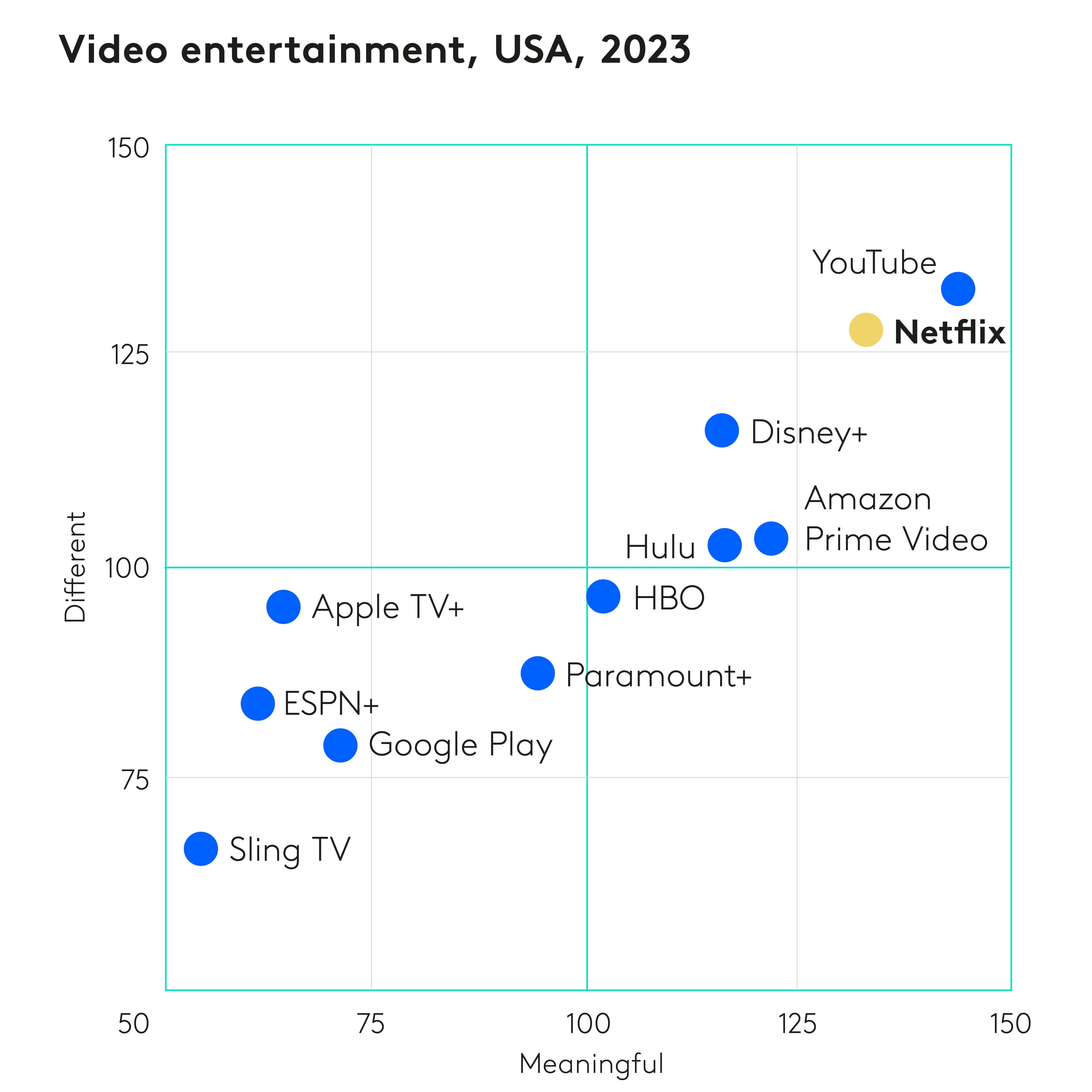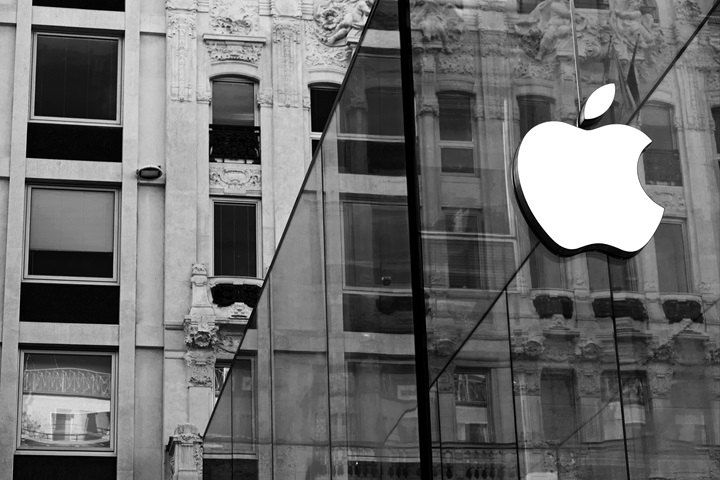Brands exist only in the minds of consumers. They are the intangible web of mental connections between the brand and a host of possible associations: what we know or have learnt about it, what we have experienced, and what we feel. The job of marketing is to create and feed these connections, and to make sure that the connections have meaning to consumers.
That’s why Kantar puts such emphasis on Meaningful Difference in its guidance to marketers and in its measurement of marketing effectiveness. How many times have you watched a commercial and thought ‘why are you telling me that’? A brand message needs to mean something in order for consumers to pay attention to it, and in order for them to recall it later during a purchase journey. That’s down to marketers correctly identifying the consumer needs that their brand can deliver against.
Needs can of course vary widely across consumers and consumption moments. What we choose while relaxing at home is different to what we need while travelling on the go or at work. We find that the most meaningful brands have several qualities.
First, they meet more needs for more people. Whether you think of these needs as ‘category entry points’, functionalities or occasions, a brand that is effective across more of them will form a stronger set of mental connections.
Second, meaningful brands address not only people’s functional needs, but also their emotional needs. Emotional connections are hugely important as consumers typically are not rational decision-makers. Emotional responses - often instantaneous and preconscious - are the filter for all of our brain functions. And imbuing brand memories with emotionality will ensure that those memories are more easily and quickly accessed when needed.
Third, meaningful brands’ associations are positive. Whether they offer superior function or emotional benefits (like security, status or social connection), they are liked. This isn’t a strong feeling, like love, just a degree of affinity that is enough to predispose the consumer to choose the brand over others, even if only to reduce the consumer’s mental burden of choice.
A majority of the Kantar BrandZ Most Valuable Global Brands of 2024 have strongly meaningful connections within their category: Microsoft meets many functional needs for home and office; Coca-Cola is associated with many consumption occasions; Nivea is trusted through generations. Being Meaningful gives these brands two important benefits. The first is to predispose more people to choose them, they have broad appeal and simplify brand choice. The second is to override the next barrier to purchase: price.
These days, Microsoft competes with free software alternatives. Coke and Nivea face many competitors, imitators and own-label products. And yet, consumers are willing to choose these brands despite the higher price tag. Meaningful brands drive both volume and margin for a healthier business.
Let’s take a deeper look at one of the fastest-growing brands in 2024’s brand value rankings. Netflix is worth $75 billion, up 51% from 2023 and 700% from its first appearance in Kantar BrandZ Most Valuable Global Brands 2016. Netflix is the leading global video streaming service, with over 260 million subscribers by the end of 2023, and it ranks fourth in Kantar BrandZ Top 20 Media & Entertainment Brands 2024.

Source: Kantar BrandZ Database
The data for Netflix and its US competitors is shown in this chart comparing measures of Meaningful and Different from our most recent Kantar BrandZ study. The US accounts for around a third of all subscribers and over 50% of Netflix’s brand value based on Kantar BrandZ’s financial analysis of global revenues.
Seventeen years after entering the video streaming space, Netflix now commands a level of demand similar to YouTube from the total viewing audience, despite being a premium paid service. How does it do this? By being perceived as a Meaningful and Different brand. As such, Kantar BrandZ diagnostic data shows that Netflix stands out as meeting multiple consumer needs with broad mental connections.
In particular, consumers view Netflix as offering a better range of content to watch, of better quality, and as being easy to use, with a well-designed platform. Netflix has built meaningful connections through a combination of great user experience and innovative product content, strongly communicated, all delivered with consistency over time to create trust and excitement about what Netflix will debut next.
Over the past few years, being more meaningful to more people has enabled Netflix to take important commercial decisions, such as blocking password sharing and increasing subscription prices, all without a commensurate loss of subscriber revenue. Company profit increased to a record $5.4 billion in 2023, up by 20.4% on the prior year.
Putting it together
How can other brands acquire this crucial quality of being Meaningful to more people?
It starts with a brand strategy that identifies the most important functional and emotional needs for category users (and potential users) and maps the brand and product existing attributes against them. It’s about asking: what is the brand known for? What can it amplify through communications in all channels? Does it have complementary, positive emotional associations providing a balanced set of mental connections? What innovations can help the brand address more needs and more occasions, and improve the user experience?
Brands then need to understand what gaps exist between their positioning and competitors’ and what investments might be required to close them. Ultimately, being more Meaningful delivers increased volume and margin over time, creating a clear business case for such investments.
That’s why Kantar puts such emphasis on Meaningful Difference in its guidance to marketers and in its measurement of marketing effectiveness. How many times have you watched a commercial and thought ‘why are you telling me that’? A brand message needs to mean something in order for consumers to pay attention to it, and in order for them to recall it later during a purchase journey. That’s down to marketers correctly identifying the consumer needs that their brand can deliver against.
Needs can of course vary widely across consumers and consumption moments. What we choose while relaxing at home is different to what we need while travelling on the go or at work. We find that the most meaningful brands have several qualities.
First, they meet more needs for more people. Whether you think of these needs as ‘category entry points’, functionalities or occasions, a brand that is effective across more of them will form a stronger set of mental connections.
Second, meaningful brands address not only people’s functional needs, but also their emotional needs. Emotional connections are hugely important as consumers typically are not rational decision-makers. Emotional responses - often instantaneous and preconscious - are the filter for all of our brain functions. And imbuing brand memories with emotionality will ensure that those memories are more easily and quickly accessed when needed.
Third, meaningful brands’ associations are positive. Whether they offer superior function or emotional benefits (like security, status or social connection), they are liked. This isn’t a strong feeling, like love, just a degree of affinity that is enough to predispose the consumer to choose the brand over others, even if only to reduce the consumer’s mental burden of choice.
A majority of the Kantar BrandZ Most Valuable Global Brands of 2024 have strongly meaningful connections within their category: Microsoft meets many functional needs for home and office; Coca-Cola is associated with many consumption occasions; Nivea is trusted through generations. Being Meaningful gives these brands two important benefits. The first is to predispose more people to choose them, they have broad appeal and simplify brand choice. The second is to override the next barrier to purchase: price.
These days, Microsoft competes with free software alternatives. Coke and Nivea face many competitors, imitators and own-label products. And yet, consumers are willing to choose these brands despite the higher price tag. Meaningful brands drive both volume and margin for a healthier business.
Let’s take a deeper look at one of the fastest-growing brands in 2024’s brand value rankings. Netflix is worth $75 billion, up 51% from 2023 and 700% from its first appearance in Kantar BrandZ Most Valuable Global Brands 2016. Netflix is the leading global video streaming service, with over 260 million subscribers by the end of 2023, and it ranks fourth in Kantar BrandZ Top 20 Media & Entertainment Brands 2024.

Source: Kantar BrandZ Database
The data for Netflix and its US competitors is shown in this chart comparing measures of Meaningful and Different from our most recent Kantar BrandZ study. The US accounts for around a third of all subscribers and over 50% of Netflix’s brand value based on Kantar BrandZ’s financial analysis of global revenues.
Seventeen years after entering the video streaming space, Netflix now commands a level of demand similar to YouTube from the total viewing audience, despite being a premium paid service. How does it do this? By being perceived as a Meaningful and Different brand. As such, Kantar BrandZ diagnostic data shows that Netflix stands out as meeting multiple consumer needs with broad mental connections.
In particular, consumers view Netflix as offering a better range of content to watch, of better quality, and as being easy to use, with a well-designed platform. Netflix has built meaningful connections through a combination of great user experience and innovative product content, strongly communicated, all delivered with consistency over time to create trust and excitement about what Netflix will debut next.
Over the past few years, being more meaningful to more people has enabled Netflix to take important commercial decisions, such as blocking password sharing and increasing subscription prices, all without a commensurate loss of subscriber revenue. Company profit increased to a record $5.4 billion in 2023, up by 20.4% on the prior year.
Putting it together
How can other brands acquire this crucial quality of being Meaningful to more people?
It starts with a brand strategy that identifies the most important functional and emotional needs for category users (and potential users) and maps the brand and product existing attributes against them. It’s about asking: what is the brand known for? What can it amplify through communications in all channels? Does it have complementary, positive emotional associations providing a balanced set of mental connections? What innovations can help the brand address more needs and more occasions, and improve the user experience?
Brands then need to understand what gaps exist between their positioning and competitors’ and what investments might be required to close them. Ultimately, being more Meaningful delivers increased volume and margin over time, creating a clear business case for such investments.





